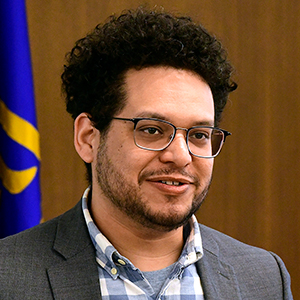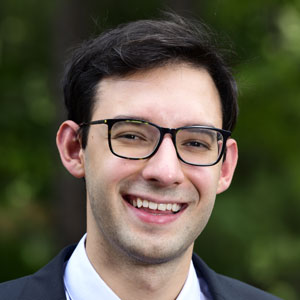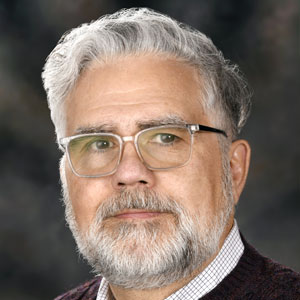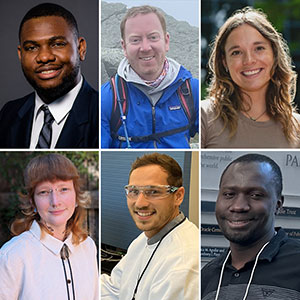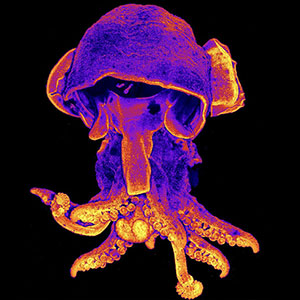NIEHS serves as a crucial training ground for the next generation of environmental health scientists. Four postdoctoral fellows — Adriana Alexander, Ph.D., Mandy Goldberg, Ph.D., Virginia Savy, Ph.D., and Emily Werder, Ph.D. — recently earned funding awards to support their career journeys from trainees to independent research scientists. Learn more about their achievements, research, and what’s next in the profiles below.
Adriana Alexander, Ph.D.
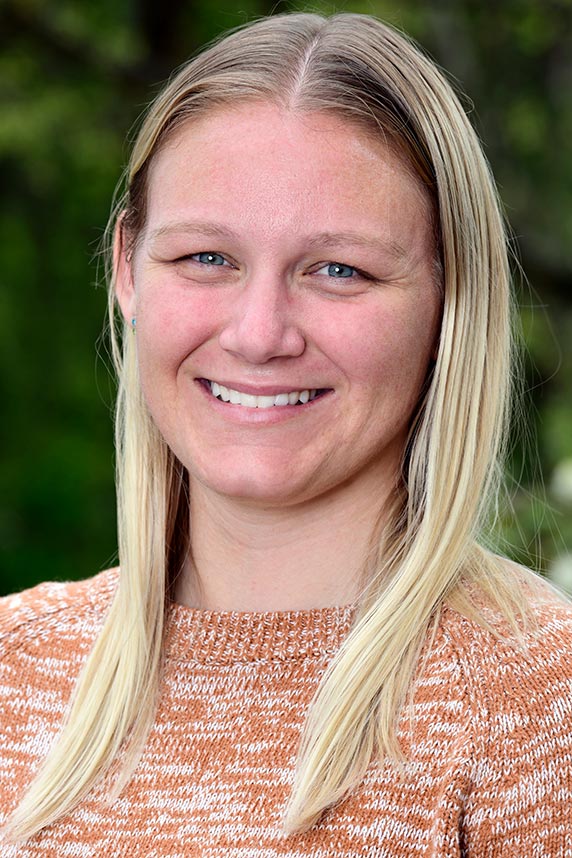
Adriana Alexander, Ph.D., is an Intramural Research Training Award (IRTA) postdoctoral fellow in the Reproductive Developmental Biology Group led by Humphrey Yao, Ph.D.
Award: National Institute of General Medical Sciences Postdoctoral Research Associate Training (PRAT) Program Fellowship.
Education: Cornell University (Ph.D. in cellular and molecular medicine); University of Southern Oregon (B.S. in cellular and molecular biology).
Hobbies: Outside of scientific research, I enjoy spending time with my son and family, hiking, and exploring the Research Triangle Park area.
Research interests: My research focuses on the biological mechanisms involved in germ cell development and differentiation. Errors in germ cell differentiation are one of the leading causes of idiopathic infertility and germ cell tumor formation in the U.S. Often germ cells that fail to adopt a sex-specific pathway toward becoming an egg or sperm during fetal life can lead to various reproductive diseases in adulthood. The goal of my research is to improve our knowledge of how cellular dynamics during germline formation result in the production of germ cells and provide insight into the defects that lead to reproductive dysfunction and disease.
What’s next: I am currently working on a single-nucleus multi-omics dataset of developing germ cells from mice. These data have identified several exciting and novel candidates that I would love to functionally investigate further to determine their role during germ cell differentiation.
Mandy Goldberg, Ph.D.
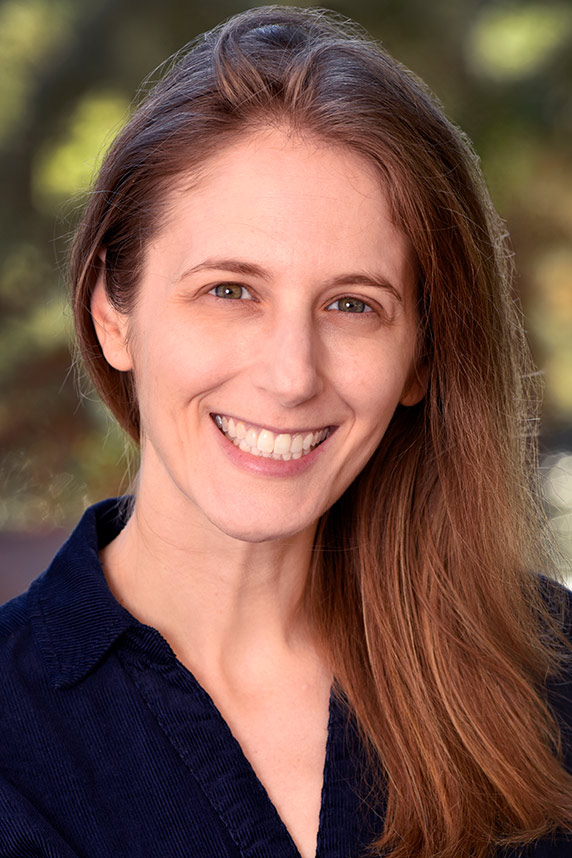
Mandy Goldberg, Ph.D., formerly an IRTA postdoctoral fellow, was selected to the National Institutes of Health (NIH) Independent Research Scholars Program and now leads the Puberty and Cancer Epidemiology Group.
Awards: NIH Independent Research Scholars Program; NIH Pathway to Independence Award (K99-R00).
Education: Columbia University (Ph.D. in epidemiology); Hebrew University (M.P.H.); University of Southern California (B.A. in international relations).
Hobbies: These days, I spend most of my time chasing around my two young kids, ages 1 and 3. I also like testing out new recipes for gluten-free baked goods and going to the theater when I can.
Research interests: My research focuses on understanding the hormonal pathways that affect breast development in early life. For my K99 research, I’m using data from the Infant Feeding and Early Development (IFED) study to investigate whether endogenous hormone production during minipuberty — a period of endocrine activity during infancy — contributes to infant breast development. We are also conducting a follow-up of the IFED cohort to determine if hormone concentrations in minipuberty are associated with the timing of pubertal onset. This work aims to provide insights into whether minipuberty is a critical period of development and a potential window of breast cancer susceptibility.
What’s next: In the future, I plan to examine potentially modifiable environmental factors, such as exposure to endocrine-disrupting chemicals, that act through early-life hormonal pathways to influence the timing of puberty and breast cancer risk.
Virginia Savy, Ph.D.
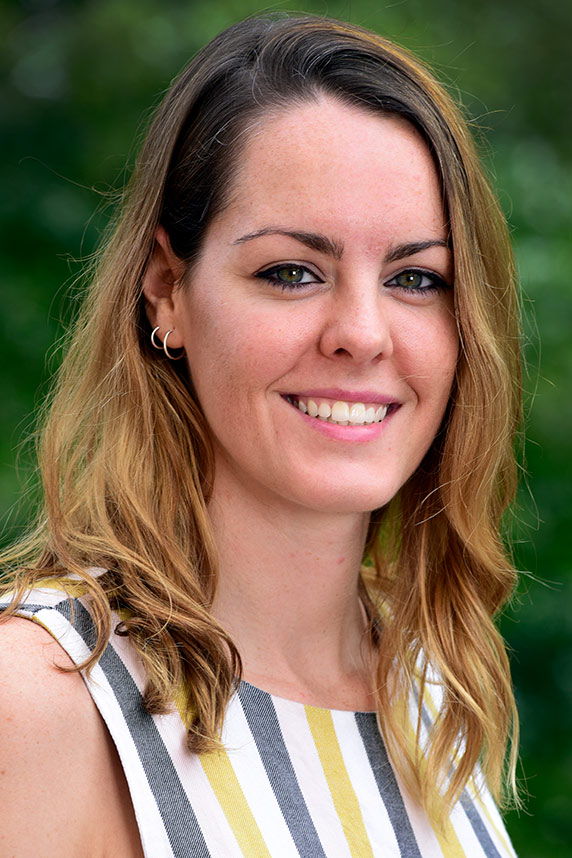
Virginia Savy, Ph.D., is a visiting fellow in the Reproductive Medicine Group led by Carmen Williams, M.D., Ph.D.
Award: National Institutes of Health (NIH) Pathway to Independence Award (K99-R00).
Education: University of Buenos Aires (Ph.D. in biotechnology and molecular biology); National University of La Plata (B.S. in biotechnology and molecular biology).
Hobbies: I am a very social person. During my free time, I like to go on hikes, planned or spontaneous trips, try new restaurants, and spend quality time with friends and family. I also enjoy gardening, but I don’t have a patio, so I keep a jungle in my apartment. My two cats complete the family picture.
Research interests: My research aims to identify the mechanisms that link calcium homeostasis at fertilization, embryo development, and offspring health. In mammals, life begins with repetitive changes in an egg’s calcium levels, called calcium oscillations. The shape of these oscillations is often environmentally responsive and can be altered through assisted reproduction, environmental exposures, or medical conditions, such as obesity or inflammation. In mice, slightly altered calcium dynamics negatively impact offspring growth and health, but it remains unclear how.
What’s next: In the future, my research seeks to improve protocols for assisted reproduction, address fertility concerns, and help improve offspring well-being.
Emily Werder, Ph.D.
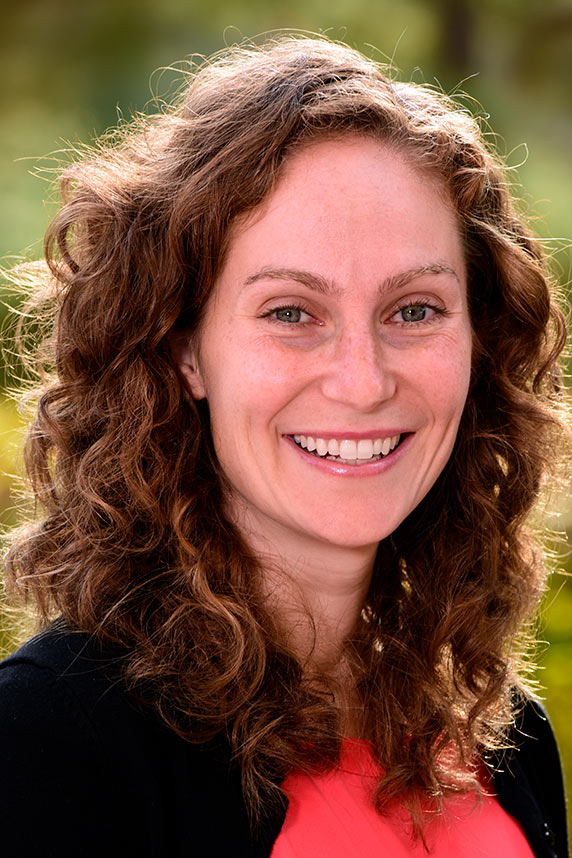
Emily Werder, Ph.D., is an IRTA postdoctoral fellow in the Chronic Disease Epidemiology Group led by Dale Sandler, Ph.D.
Award: National Institutes of Health (NIH) Pathway to Independence Award (K99-R00).
Education: University of North Carolina at Chapel Hill (Ph.D. in epidemiology; M.P.H. in health behavior and health education; B.S. in biology).
Hobbies: I have three children and I love spending time outside with my family.
Research interests: I study the way that environmental exposures, ranging from air pollution to endocrine-disrupting chemicals, impact brain development and neurologic health. In the NIEHS Gulf Study, I focus on how ambient climate-related environmental exposures, such as air pollution, can affect neurologic outcomes and mental health in adults. For my K99 research, I use serially collected exposure biomarkers and MRIs from the UNC Baby Connectome Project to study how early-life chemical exposures, including phthalates and pesticides, impact structural growth and functional brain development in children from birth to the age of 5.
What’s next: I hope to build an independent research program that deepens our understanding of the various environmental impacts on child neurodevelopment, as well as neurologic health across the entire human lifespan.
The Office of Fellows' Career Development (OFCD) at NIEHS worked closely with the fellows throughout the grant application process to answer questions about requirements and submit the K99/R00 and PRAT applications. For additional information about an OFCD-led grant workshop that is useful for future grant applicants, please contact Mercy Arana, Ph.D.
(Ben Richardson, Ph.D., is a Presidential Management Fellow in the NIEHS Office of Communications and Public Liaison.)





